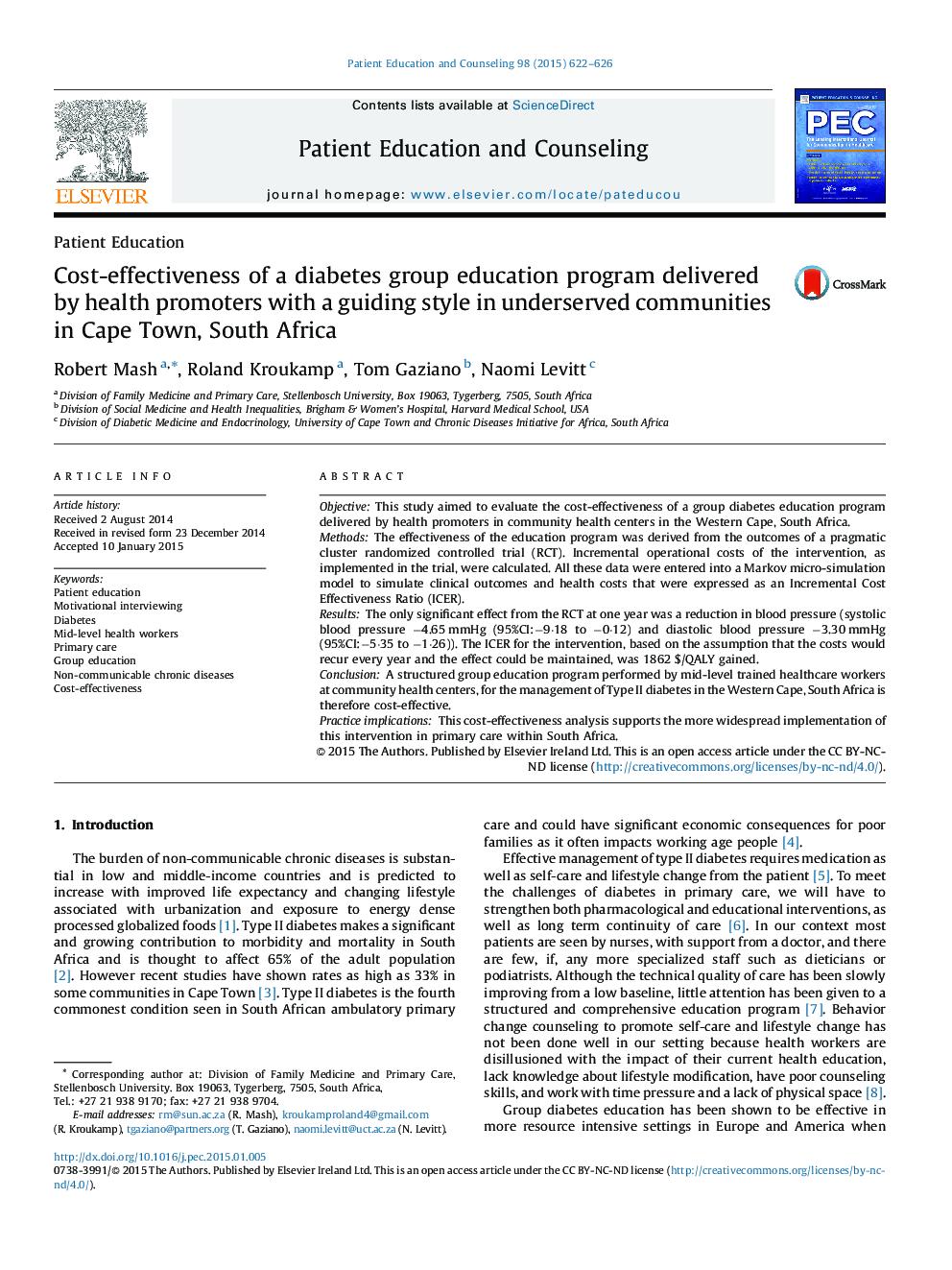| Article ID | Journal | Published Year | Pages | File Type |
|---|---|---|---|---|
| 6152230 | Patient Education and Counseling | 2015 | 5 Pages |
â¢We evaluate cost-effectiveness of group diabetes patient education.â¢Education is by mid-level health workers in a middle income African country.â¢Group diabetes education was effective in lowering blood pressure at 1-year.â¢The incremental cost-effectiveness ratio was 1862 $/QALY.â¢Group diabetes education is a cost-effective intervention in this context.
ObjectiveThis study aimed to evaluate the cost-effectiveness of a group diabetes education program delivered by health promoters in community health centers in the Western Cape, South Africa.MethodsThe effectiveness of the education program was derived from the outcomes of a pragmatic cluster randomized controlled trial (RCT). Incremental operational costs of the intervention, as implemented in the trial, were calculated. All these data were entered into a Markov micro-simulation model to simulate clinical outcomes and health costs that were expressed as an Incremental Cost Effectiveness Ratio (ICER).ResultsThe only significant effect from the RCT at one year was a reduction in blood pressure (systolic blood pressure â4.65 mmHg (95%CI:â9·18 to â0·12) and diastolic blood pressure â3.30 mmHg (95%CI:â5·35 to â1·26)). The ICER for the intervention, based on the assumption that the costs would recur every year and the effect could be maintained, was 1862 $/QALY gained.ConclusionA structured group education program performed by mid-level trained healthcare workers at community health centers, for the management of Type II diabetes in the Western Cape, South Africa is therefore cost-effective.Practice implicationsThis cost-effectiveness analysis supports the more widespread implementation of this intervention in primary care within South Africa.
